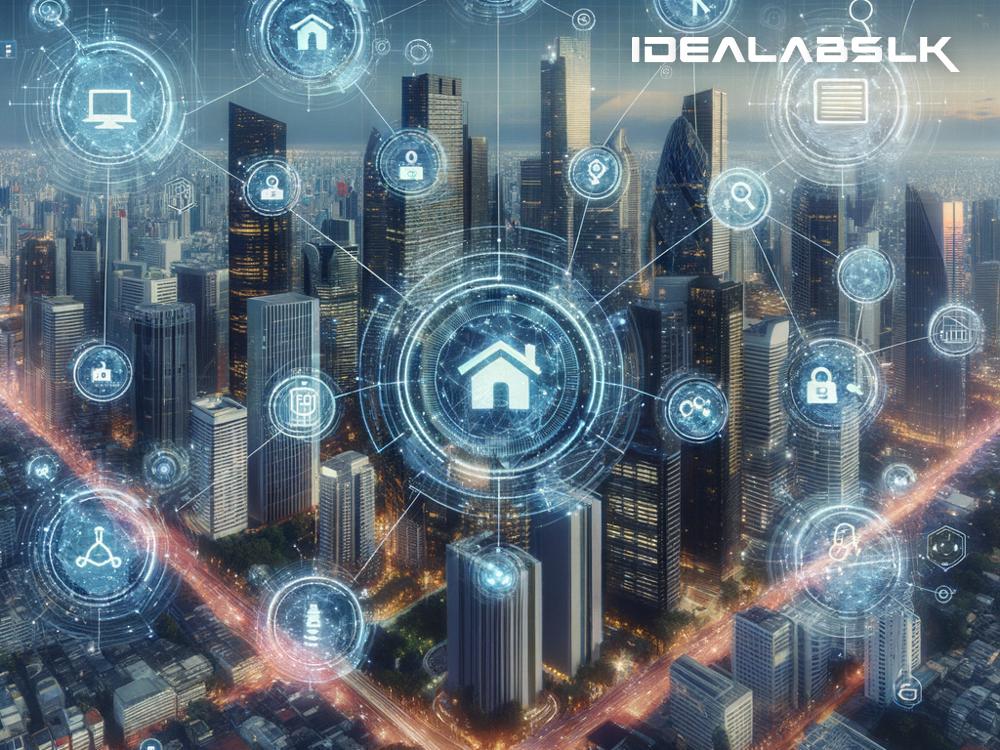Blockchain for Real Estate: A New Horizon for Efficient Property Transfer
In the fast-paced world we live in, innovation and technology touch every part of our lives, making things quicker, easier, and more transparent. The real estate industry, an essential pillar of the global economy, is no exception. Interestingly, one of the most revolutionary technologies leading this transformation is Blockchain. You might have heard about Blockchain in the context of cryptocurrencies like Bitcoin. However, its utility goes far beyond, offering remarkable opportunities for making property transfers more efficient.
First off, let's break down what Blockchain is in simple English. Imagine a digital ledger or a record book that's not kept in one place but is distributed across several computers around the world. This means that every transaction added to this ledger is recorded on multiple computers, making it nearly impossible to tamper with. Each record is a "block," and they are all linked together in a "chain," hence the name Blockchain.
Now, how does this relate to real estate? Traditionally, buying or selling property involves a lot of paperwork, third-party intermediaries like agents and lawyers, and a hefty amount of time and money. This process can be complex, costly, and sometimes, not entirely transparent. Here's where Blockchain comes as a game changer.
Efficiency through Transparency and Security
Blockchain can store vast amounts of data, including property details, transaction history, and ownership records. This information is accessible in real-time and is tamper-proof due to the technology's inherent security features. Therefore, anyone involved in the transaction can trust this data without the need for extensive verifications, which speeds up the process considerably.
Cutting Out the Middleman
Blockchain enables what are known as smart contracts. These are self-executing contracts with the terms of the agreement between buyer and seller directly written into lines of code. They automate processes that were previously manual, like ensuring that payments are only released when certain conditions are met. This can significantly reduce the need for intermediaries, potentially saving both parties time and money.
Making Transactions Faster and Cheaper
The real estate transaction process can be lengthy, sometimes taking several months to complete. It involves multiple steps, including property verification, agreement on terms, securing financing, and the actual transfer of property. Blockchain can streamline this process by making the verification of the property's history and ownership much faster through its secure, immutable records. By doing so, it can also help in reducing the costs associated with these transactions, such as fees for lawyers and real estate agents.
Global Impact
Blockchain for real estate doesn't just benefit buyers and sellers in one country; it has global implications. For international transactions, Blockchain can simplify the process, making it easier for people to buy property in other countries by reducing the complexities and costs associated with currency exchange, taxes, and legalities.
Future Projections
As technology develops and becomes more widespread, we can expect Blockchain applications in real estate to become more sophisticated. For instance, we might see a growth in tokenization, where property is divided into shareable tokens that can be sold. This could make real estate investment more accessible to a wider range of people, democratizing property investment.
However, like any technological innovation, Blockchain in real estate faces challenges. These include regulatory hurdles, the need for a certain level of technical understanding, and ensuring widespread adoption across the industry. But as we've seen with other technologies, these challenges are not insurmountable. With time, investment, and regulatory support, Blockchain could very well be the standard for real estate transactions in the future.
In Conclusion
Blockchain technology promises to revolutionize the real estate industry by making property transfer faster, cheaper, and more secure. While there are hurdles to overcome, the potential benefits are enormous, offering a glimpse into a future where buying and selling property is as easy as clicking a button. Just as the internet forever changed the way we communicate, Blockchain could redefine how we think about property ownership and investment.

